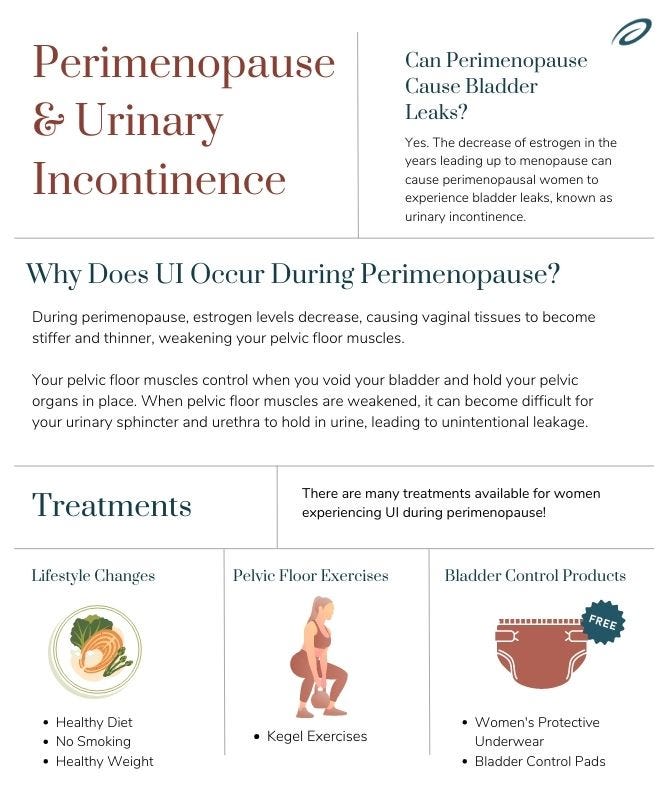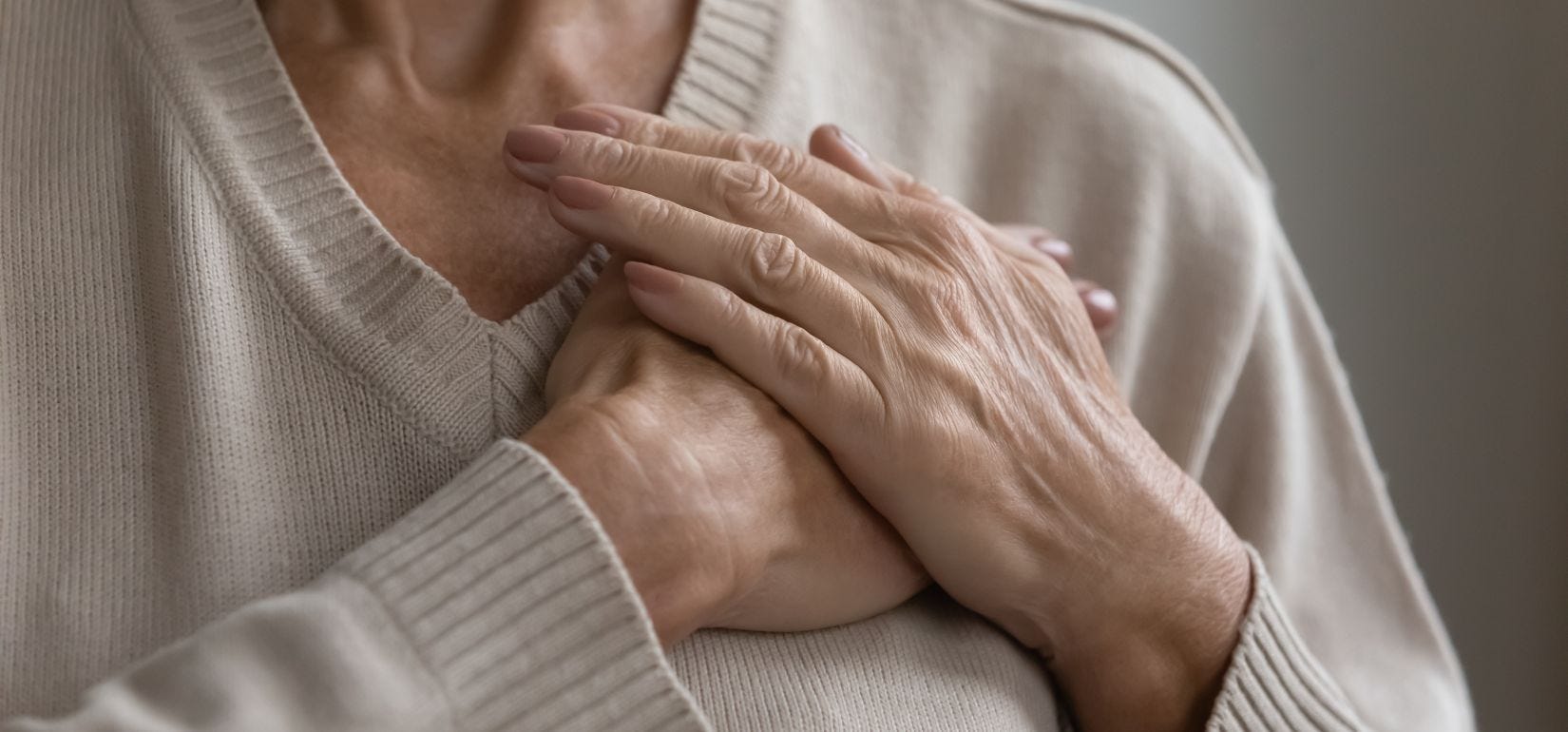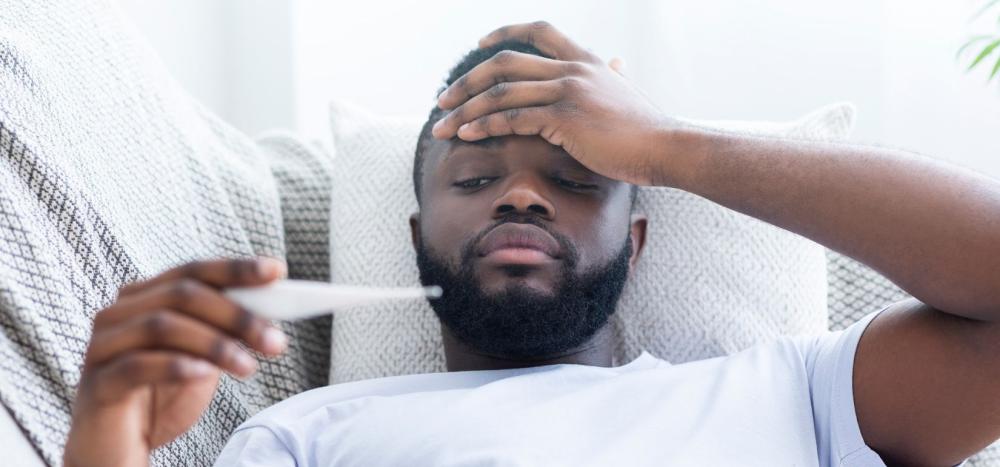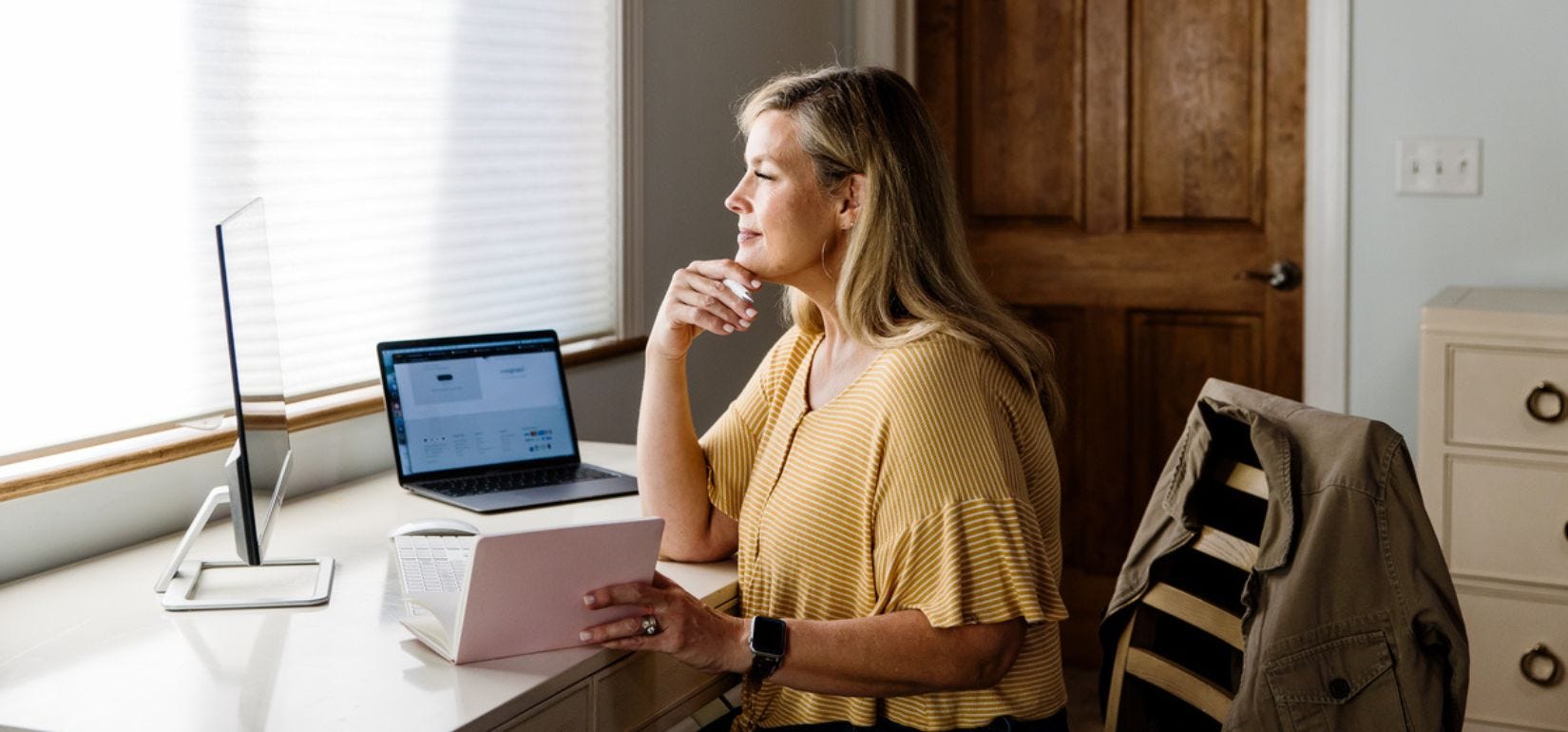Hot flushes. Mood changes. Sleep disturbances. These are all symptoms women can experience before they enter menopause during a time called perimenopause.
But did you know women can also experience bladder leaks during this time? Bladder problems are common among perimenopausal women and it may worsen their quality of life, but it doesn’t have to.
Learn about perimenopause and how to prevent and treat bladder leaks during perimenopause in this article.
What Is Perimenopause?
Perimenopause is a transition time that every woman will go through in their life, from reproductive years to menopause. It happens 5-10 years before menopause actually begins. Perimenopause can start before your last period ends, typically between the late 30s and 50s. The average age for menopause is 51-52 years old, so symptoms could start as soon as your early 40s. This phase can last months or years, depending on the individual.
The cause of perimenopause is the waning of ovarian function and your ovaries producing less estrogen and testosterone. During perimenopause, menstruation becomes irregular, eventually ending when menopause begins.
Check Your Eligibility
2 Easy Steps
From catheters to pediatric and adult incontinence supplies, discover the continence care essentials covered by your insurance.
The hypothalamic-pituitary-ovarian axis gets “under and over” signals during this time, which can cause a multitude of symptoms, including hot flashes, irregularity in menstrual cycles, low libido, fatigue, mood changes, and bladder leaks.
Signs of Perimenopause
Signs and symptoms of perimenopause can be subtle and they vary from person to person. Signs include:
- Menstrual fluctuations (shorter and heavier, to more spread out and lighter)
- Hot flushes / night sweats
- Bladder leaks
- Mood changes
- Depression / anxiety (either worsening or starting)
- Sleep changes and sleep disturbances
- Vaginal dryness
- Weight changes
Risk Factors for Early Perimenopause
- Family history
- Medications (steroids, hormones, etc,)
- Smoking
- Surgical removal of uterus and / or fallopian tubes / ovaries
- Chemotherapy / radiation treatment for cancers, especially gynecology and breast cancers
Why Bladder Leaks Occur During Perimenopause
Perimenopause can cause a range of menopausal symptoms, but it can also cause bladder leaks. This condition is known as urinary incontinence (UI) and it’s very common among older women.
When you’re in your perimenopausal stage, estrogen levels decrease. This drop in hormones causes urogenital tissues to become stiffer and thinner, weakening your pelvic floor muscles. Because pelvic floor weakness naturally occurs as you age, women experiencing perimenopause are more likely to leak urine during this time.
Your pelvic floor muscles control when you void your bladder and hold your pelvic organs in place. When pelvic floor muscles are weakened, it can become difficult for your urinary sphincter and urethra to hold in urine, leading to unintentional leakage.


Perimenopausal women may experience different types of UI, including:
Stress Incontinence: Leaking urine when sneezing, coughing, lifting heavy objects, exercising, or having sex.
Urge Incontinence: Feeling the sudden and intense urge to urinate, leading to urine leakage.
Mixed Incontinence: Experiencing two or more types of incontinence symptoms at once.
Nocturia: Urinating multiple times during the night.
Risk Factors for UI During Perimenopause
Some women may be more at risk for developing UI during perimenopause due to lifestyle factors, including:
- Childbirth
- Pelvic surgeries, like hysterectomies
- Certain neurological conditions, such as Parkinson’s disease
- Certain medications
- Diet and weight
Treatments for Bladder Leaks During Perimenopause
There are lots of interventions, both conservative and medical, that can be used to help guide you through smooth sailing during this time in your life, even with bladder leaks.
Lifestyle Changes
Cut back on foods and drinks that irritate your bladder, such as spicy foods, tomato-based products, alcohol, and caffeine. Quitting smoking can also improve symptoms of UI. You should also maintain a healthy weight so your pelvic floor doesn’t experience extra pressure from excess weight.
Hormone Therapy
Hormone therapies like vaginal creams or estrogen patches may help lessen bladder leaks during perimenopause.
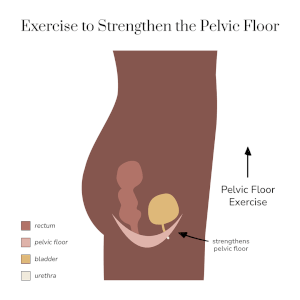

Bladder Control Products
Bladder control pads and adult protective underwear are ultra-absorbent incontinence products that will keep you dry all day and night. Depending on your level of leakage, you may want to consider different options, but all bladder control supplies can be useful during perimenopause. Plus, you may qualify to get them 100% covered by insurance with Aeroflow Urology
Medications
Different medications, like anticholinergics, can calm the bladder and improve symptoms of urge incontinence.
Pelvic Floor Exercises
Pelvic floor exercises, such as Kegels, will strengthen your pelvic floor muscles and treat symptoms of UI. Add these exercises into your weekly workout routine. See a pelvic floor therapist for additional support.
Vaginal Pessary
Pessaries are helpful to reduce symptoms of stress incontinence by holding the bladder in place and reducing urine leakage.
Surgeries
You can speak to your healthcare provider about which surgeries are available for women experiencing UI during perimenopause.
Disclaimer
Information provided on the Aeroflow Urology website is not intended as a substitute to medical advice or care from a healthcare professional. Aeroflow recommends consulting your healthcare provider if you are experiencing medical issues relating to incontinence.


